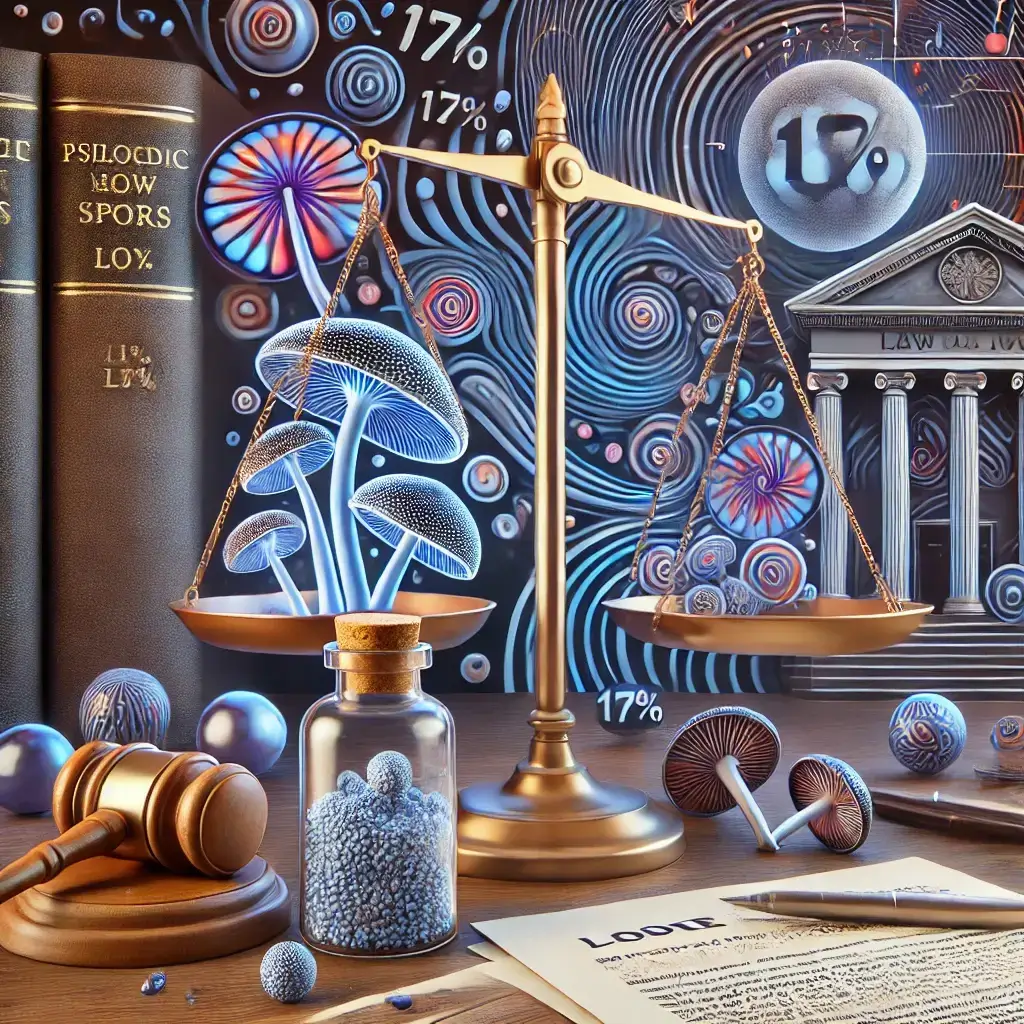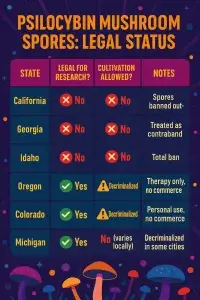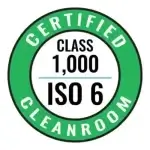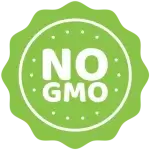Spores, Stigma, and the Strange Space Between
Psilocybin mushrooms have walked a tightrope of fascination and fear for decades—embraced by researchers, criminalized by governments, and misrepresented in the mainstream. But what often gets lost in the conversation is their origin story. Not the first trip, not even the first fruiting body, but the microscopic spore.
So here’s the question: Are mushroom spores legal?
Technically, yes. But as you might guess, the real answer is layered—like mycelium under the surface. And while the spores themselves may seem harmless, their context can shift everything.
This article cuts through the confusion with straight answers and cautious optimism. If you’re a curious hobbyist, academic researcher, educator, or microscopy enthusiast, this guide will help you navigate the legal terrain—without stepping on any tripwires.
What Are Psilocybin Mushroom Spores—And Why Does It Matter?
Spores are the reproductive cells of fungi, kind of like seeds but infinitely smaller—usually between 3 to 17 microns wide. They contain the genetic blueprint of the mushroom, but here’s the catch: they don’t contain psilocybin or psilocin.
That detail matters more than most people realize.
From a legal standpoint, psilocybin and psilocin are the actual controlled substances—not the mushrooms themselves. So, a spore is essentially a blank slate. It’s inert. Non-psychoactive. Scientifically fascinating but chemically harmless.
Most vendors (like Atlas Spores) explicitly label their products for:
- Microscopy
- Taxonomy
- Educational purposes
No cultivation. No loopholes. No winks or nudges.
Until they germinate, spores are just specks of genetic material. But the moment they begin to grow? That’s where things get complicated—and potentially illegal.
Federal Law: The DEA’s Current Stance on Spores
In January 2024, the DEA reaffirmed a long-standing position: if mushroom spores do not contain psilocybin or psilocin, they are not considered controlled substances under the Controlled Substances Act (CSA).
“If the mushroom spores (or any other material) do not contain psilocybin or psilocin… the material is considered not controlled under the CSA.”
— Terrence Boos, DEA Drug & Chemical Evaluation Section
📄 Source: Marijuana Moment – DEA Letter 2024
So at the federal level:
- ✔️ Possession and sale of spores is legal
- ❌ Cultivation of those spores into psychoactive mushrooms is not
The Catch: Cultivation Intent Turns Innocence into Offense
If authorities believe you intend to cultivate—especially if you’re caught with grow supplies, petri dishes, or colonized substrate—your legal position changes drastically.
This is where the law gets… interpretive.
That’s why reputable vendors include disclaimers like: “For Microscopy, Taxonomy, and Educational Use Only. Not for Cultivation.” It’s not just to cover themselves—it’s to protect you, too.
State Law: Where Spores Are (and Aren’t) Legal
While federal law may not prohibit psilocybin mushroom spores, several U.S. states have created their own specific restrictions—some of which are absolute. Understanding where spores are illegal or treated as contraband is critical for staying compliant.
❌ States Where Spores Are Explicitly Illegal:
- California – Spores banned under Health & Safety Code §11391
- Georgia – Spores treated as contraband
- Idaho – Total prohibition
⚠️ States With Decriminalization or Ambiguous Policies:
- Oregon – Legal only in licensed therapy; spores okay if not germinated
- Colorado – Decriminalized for personal use, but no commercial cultivation
- Michigan – Illegal statewide, but cities like Ann Arbor have deprioritized enforcement
👉 Because spores are illegal in these states, Atlas Spores does not ship to California, Georgia, or Idaho
✅ Legal in Most Other States
As long as there’s no cultivation or implication of it, spores are typically legal for microscopy use.
Outside the U.S.: How Other Countries Handle Spores
- Canada – Illegal unless authorized for medical research
- Brazil – Mushrooms not criminalized, but psilocybin is
- Netherlands – Mushrooms banned, but truffles legal
- United Kingdom – Spores legal, germination illegal
- Portugal – Decriminalized possession, illegal cultivation/sale
- Australia – Licensed medical use only; spores typically banned
Scientific Value: Why Spores Matter (Beyond the Legal Drama)
- Identify species using microscopic morphology
- Track genetic variation
- Preserve biodiversity
- Educate students and researchers
As psilocybin research expands, spores are becoming a cornerstone of legal, ethical scientific discovery.
Legal Tips for Buyers
- ✅ Stick with reputable vendors
- ✅ Never ask about cultivation
- ✅ Avoid grow forums
- ✅ Don’t buy spores + grow gear together
- ✅ Keep purchase records
The threat isn’t the spores—it’s the context.
Why This Matters: The Future of Psychedelic Access Starts Here
We’re entering a psychedelic renaissance. Psilocybin is being explored for therapeutic uses. But legal, ethical access starts with education and responsible behavior.
Respecting the current legal boundaries sets the stage for long-term reform.
How Atlas Spores Stays Compliant
- Clearly labeled products
- No shipping to CA, GA, or ID
- No cultivation advice or guidance
- Batch and lab-tested spores
- Educational content and responsible messaging
Whether you’re a researcher, student, or microscope hobbyist—we’re here to support your legal exploration.
Final Word: Stay Curious, Stay Careful
The legality of psilocybin spores is complex—but navigable. By understanding and respecting the boundaries, we keep the doors of discovery open.
🧬 Start your microscopy journey the right way with Atlas Spores.




